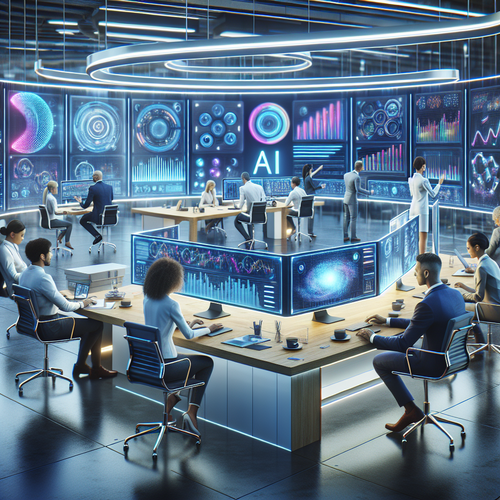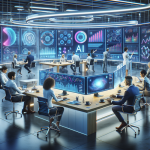
Exploring the Impact of AI on Software Development
Exploring the Impact of AI on Software Development
Artificial Intelligence (AI) is transforming the world at a rapid pace, and the software development industry is no exception. With its ability to automate monotonous tasks, predict outcomes, and improve overall efficiency, AI is reshaping the way developers work and approach problem-solving.
The Rise of AI in Software Development
In recent years, AI has stepped into various roles within the software development lifecycle. From assisting in coding to automating testing procedures, the integration of AI technologies is streamlining processes that were traditionally labor-intensive. According to a recent study, companies adopting AI tools have seen productivity improvements of up to 40%.
Enhanced Coding Practices
One of the most significant contributions of AI is in code generation and predictive coding. Tools such as OpenAI’s Codex and GitHub Copilot are designed to assist developers by suggesting code snippets, completing boilerplate code, and even generating complex functions with just a few prompts. This not only speeds up coding but also helps less experienced developers to learn and adopt best practices.
AI-Powered Testing
In software testing, AI technologies can predict potential bugs and vulnerabilities. By analyzing historical data, AI can identify patterns that may lead to issues in software functionality. Tools like Applitools provide visual AI testing that performs screenshots of UI tests to ensure consistency across different devices and browsers.
Impact on DevOps
The merge of AI and DevOps is paving the way for more efficient processes. AI assists in continuous integration and deployment (CI/CD) by monitoring application performance and suggesting optimizations during deployment. Automation scripts, powered by machine learning algorithms, can predict peak loads and system failures, allowing teams to preemptively address challenges.
Chatbots in Development Support
AI chatbots are becoming pivotal in enhancing developer support services. They can analyze queries, provide solutions, or direct developers to relevant resources in real-time. This immediate access to information reduces downtime and increases team productivity. Moreover, advanced chatbots evolve through interaction, becoming more adept over time.
Challenges and Considerations
Despite the advantages, there are challenges associated with AI integration in software development. There is a need for developers to understand how to effectively utilize AI tools, ensuring they complement human skills rather than replace them. Additionally, data privacy and security concerns must be addressed, particularly when AI models are trained on proprietary codebases.
Ethical Considerations
As with any technology, ethical considerations arise with AI’s use in software development. It is essential to establish guidelines around the use of AI-generated code to mitigate risks associated with copyright violations and data breaches. Collaboration between developers and AI ethics teams can help in navigating these complexities.
Looking Forward
The future of software development is likely to be heavily influenced by AI advancements. With technologies continuously evolving, companies that embrace AI can expect to stay competitive in a rapidly changing market. As stated in our previous post, Exploring the Next Generation of Quantum Computing, the fusion of cutting-edge technologies will drive innovation in ways we have yet to fully envision.
Conclusion
AI’s impact on software development is profound and lasting. By automating routine tasks and providing intelligent insights, AI empowers developers to focus on more critical aspects of their projects. As we continue to harness the potential of AI, the way we develop software will continue to improve, resulting in faster, higher-quality software products.













